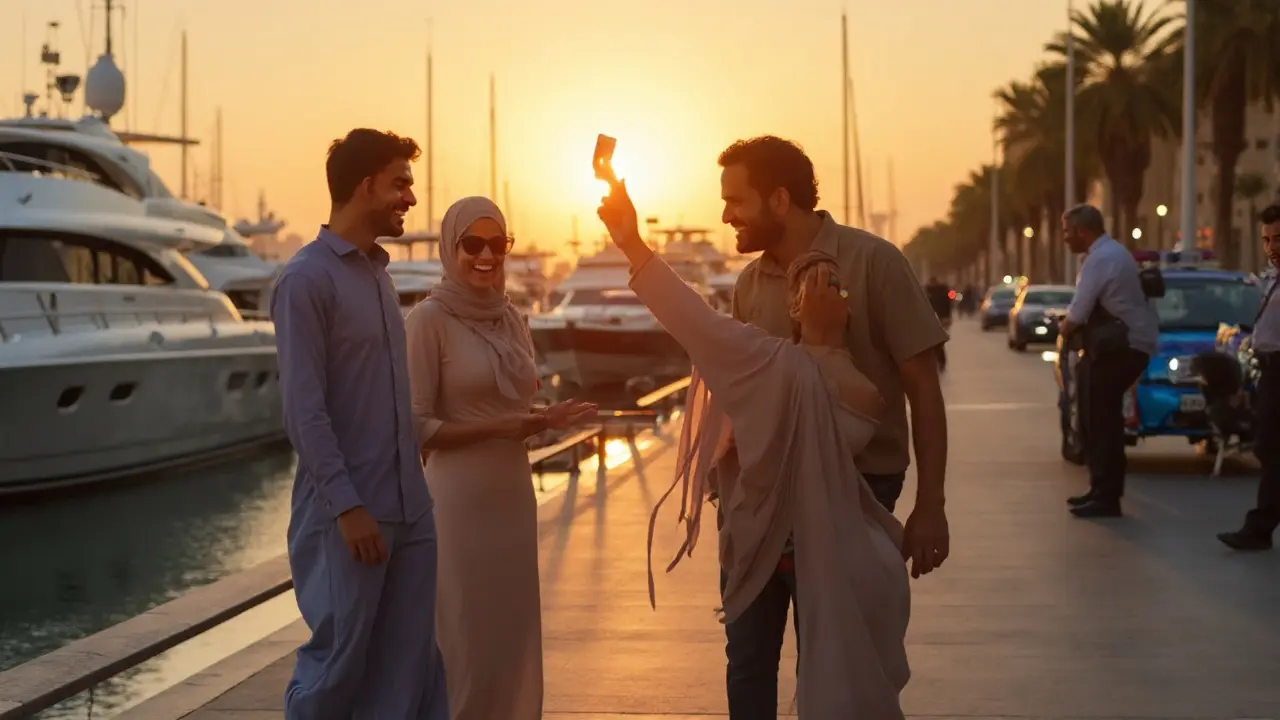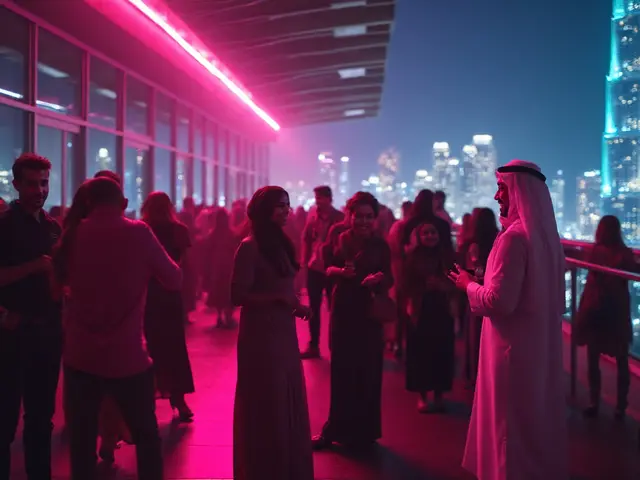Is It Illegal to Twerk in Dubai? Public Decency Rules, Venues, and Social Media in 2025

Key takeaways: Is it illegal to twerk in Dubai?
You want a straight answer, so here it is. Short and honest.
- Twerking isn’t named in UAE law, but any dance that’s “lewd” or offensive to public morals can get you in trouble if it’s in public spaces.
- In licensed venues (nightclubs, bars), dancing is normal. Security may step in if moves or outfits cross the venue’s decency policy.
- Filming and posting suggestive dancing can be riskier than the dance itself. The UAE Cybercrime Law punishes “indecent” content and posting others without consent.
- Penalties vary: warnings are common inside venues; public indecency charges can lead to fines, detention, and-if serious-deportation for non‑citizens.
- Play it safe: keep bold moves for private events or licensed clubs; avoid doing it in streets, malls, beaches, or around families; don’t post edgy clips.
Context: This reflects Dubai practice in 2025 and what I see living here day-to-day. It’s not legal advice, just real-world guidance.
What the law actually says (and how it’s enforced)
There’s no line in UAE law that says “no twerking.” What matters is the broader idea of public decency and respect for local culture.
The basics you should know:
- Crimes and Penalties Law (Federal Decree‑Law No. 31 of 2021): punishes acts that offend public morals or modesty. That can include sexual gestures, indecent exposure, or behavior that’s considered obscene in public.
- UAE Cybercrime Law (Federal Decree‑Law No. 34 of 2021): bans posting content online that violates public morals or privacy. Filming someone dancing and posting them without consent can be a serious offense.
- Dubai Code of Conduct (Government guidance): sets expectations around dress, public behavior, and respect for family-friendly spaces.
How that plays out in real life:
- Location matters more than the move. Inside licensed clubs, the bar is higher for what’s acceptable. On a public beach, the bar is much lower. In a mall or metro, a suggestive dance can quickly cross the line.
- Security first, police if needed. In nightlife venues, security will usually warn you or ask you to tone it down before anything escalates.
- Filming changes the risk. A dance that gets no attention in a club can become a legal headache if it’s filmed, posted, and perceived as obscene or if it shows others without consent.
- Dress and context matter. Revealing outfits plus provocative moves in a public, family area is where people get stopped. A chic club dress on a dance floor is much less of an issue.
What penalties look like in practice:
- Inside a club: verbal warning, being moved off the platform, or being asked to leave. If you argue or refuse, that’s when police may be called.
- Public areas (streets, beaches, parks): possible police stop for indecency. Outcomes range from a warning to a fine or formal charge, depending on what happened and how you respond.
- Online: posting indecent content or someone’s footage without consent can trigger cybercrime charges. Fines can be heavy, and serious cases can lead to jail and deportation.
Primary sources if you want to read up: Federal Decree‑Law No. 31 of 2021 (Crimes and Penalties), Federal Decree‑Law No. 34 of 2021 (Cybercrimes), and Dubai’s Code of Conduct guidance. These set the ground rules-venues add their own house policies on top.

Where and how you can dance safely in Dubai
You don’t have to sit still. Dubai’s nightlife is lively; you just need to match the vibe to the space. I live here, go out, and here’s what actually works without headaches.
Safest spaces for bold moves:
- Licensed nightclubs and bars (Dubai Marina, Business Bay, Palm Jumeirah): dancing is expected. Stay on the dance floor or designated platform, and mind the house rules.
- Private villa parties: more freedom, but keep noise down and avoid disturbing neighbors. No public visibility (balconies/rooftops facing the street) for suggestive dancing.
- Ticketed concerts and festivals: dancing is normal. Keep it respectful and crowd-aware. Security will flag anything too explicit.
High-risk spaces for suggestive dancing:
- Public beaches and parks (especially weekends and family areas): best to avoid. Swimwear is for sunbathing and swimming, not for performing provocative dances.
- Malls, metro stations, and tourist landmarks: zero tolerance for suggestive moves. You’ll draw security fast.
- Residential neighborhoods: neighbors call security quickly; not worth the trouble.
House rules that club security actually cares about:
- No dancing on furniture unless staff says it’s okay (and then only on designated platforms).
- No groping or simulated sexual acts-solo or with a partner.
- Keep outfits within the venue’s decency code; if in doubt, add a layer.
- Be polite if approached by security. Cooperation usually ends it there.
Social media angle (the silent tripwire):
- Don’t film others without consent-especially staff or other guests. Privacy matters here.
- Skip posting anything that looks sexual, drunk, or disruptive in public places. A “fun” clip can read very differently to authorities.
- If someone filmed you and posted without consent, you can report it; the law backs privacy claims.
Venue risk quick guide:
| Venue/Setting | Risk Level | What’s Usually Okay | What Triggers Trouble | Pro Tips |
|---|---|---|---|---|
| Licensed nightclub | Low-Medium | Normal club dancing on the floor or platform | Simulated sexual acts, blocking views, aggressive behavior | Follow staff cues; stay on approved areas |
| Beach club (daytime) | Medium | Casual dancing near your cabana/table | Explicit moves in swimwear around families | Keep it low‑key; choose adult-only zones |
| Public beach/park | High | Fitness stretching, light movement | Suggestive dancing, filming crowds | Don’t perform; save it for private venues |
| Malls/metro/landmarks | Very High | None-no performances | Any dance routine, loud music, blocking traffic | Just don’t |
| Private villa party | Low (if discreet) | Dancing indoors, guests-only | Noise complaints, balcony/street visibility | Close curtains; keep volume reasonable |
If you plan nights out in 2025: Dubai Marina clubs, Business Bay lounges, and Palm Jumeirah hotspots have strong security and clear house rules. That’s good news-you’ll get guidance before anything escalates.
Practical do/don’t checklist + quick decision tool
Here’s the plain-English playbook that keeps you safe while you have fun.
Do this:
- Keep the boldest moves for licensed venues or private gatherings.
- Watch the room: if security looks uneasy or guests seem uncomfortable, dial it back.
- Dress with the venue in mind: clubwear in clubs; cover up when leaving the venue.
- Ask before filming, and avoid posting anything that could be seen as sexual or disruptive in public spaces.
- Be polite and cooperative with staff or police-attitude often decides outcomes.
Don’t do this:
- Don’t perform suggestive routines in public places (streets, malls, metro, beaches).
- Don’t dance on furniture unless staff okays it, and never near glass rails.
- Don’t film strangers or security staff. Definitely don’t post them without consent.
- Don’t argue if you’re asked to stop; step aside and listen.
- Don’t mix drunk behavior with public spaces. Save it for rides home or stay inside the venue.
Two-minute decision tool:
- Where am I? If it’s not a licensed venue or private home, don’t do suggestive moves.
- Who’s around me? Families, kids, or a mixed public crowd means keep it PG.
- Am I being filmed? If yes (or maybe), assume the video could be judged out of context online.
- Is security watching? If they are, they’re deciding whether to intervene. Take the hint and tone down.
- Would I be comfortable showing this clip to an employer? If no, don’t post it-and maybe don’t do it.
What to do if things get tense:
- Security approaches: stop dancing, smile, and say, “Got it, thank you.” That line works wonders here.
- Police stop you: speak calmly, show ID, and say you’ll cooperate. If asked to go to the station, go quietly and request to contact your consulate.
- Someone filmed you without consent: ask them to delete it. If they refuse and it feels serious, speak to venue security. You can file a complaint later.
Small but important seasonal note: during Ramadan, entertainment is toned down and venues adopt a more conservative vibe. Dancing still happens in some places, but keep it extra respectful.

FAQ: twerking, dancing, filming, and posting in Dubai
I get these questions constantly-friends, visitors, and yes, even long-term residents.
Is it illegal to twerk in Dubai?
No law names twerking specifically. But a suggestive dance in public places can fall under public indecency. Inside licensed venues, you have more leeway, but keep within house rules and decency standards.
Can I twerk in a nightclub?
Usually yes, within reason. If it looks like a sexual act or draws complaints, security will stop you. Follow their lead and you’ll be fine.
What if I’m at a beach club?
Subtle dancing by your cabana is fine. Explicit routines in swimwear around families are not. Choose adult-only areas and keep it low-key.
Can I dance in a public place for a TikTok?
Non-suggestive, quick clips in quiet areas sometimes pass. Suggestive dances in public are risky. Filming in malls, metro stations, or crowded landmarks can also breach filming rules. When in doubt, don’t.
Is filming someone without consent illegal?
Yes. The cybercrime and privacy rules are strict. Recording and posting people without consent-especially in a way that harms their privacy or reputation-can lead to heavy fines and possible jail time.
Could I get deported for dancing?
Deportation is possible for serious offenses or repeated issues, but it’s not the default for a one-off inside a venue. The more public and sexual the behavior (and the more viral the video), the higher the risk.
What counts as “indecent” legally?
The law uses broad terms like “public morals” and “modesty.” Practically, think: sexual gestures, simulated acts, or anything that makes a public, family setting uncomfortable.
Can I get in trouble for the outfit I’m wearing while dancing?
Potentially, if it’s very revealing in a public setting. Clubs are more flexible; public spaces are not. Carry a cover-up when moving between venues.
What if a video of me went viral?
Don’t panic. Don’t repost or argue online. Consider speaking with the venue and, if needed, consult a lawyer. If you’re contacted by authorities, cooperate and provide context.
Are there official references I can quote?
Yes: Federal Decree‑Law No. 31 of 2021 (Crimes and Penalties), Federal Decree‑Law No. 34 of 2021 (Cybercrimes), and Dubai’s Code of Conduct. Venues will also cite their house rules.
How do police usually handle minor incidents?
Often with a conversation or a warning-especially if you’re respectful. Escalation happens when there’s refusal, aggression, or filming that complicates the situation.
Is it different during Ramadan?
Yes. Entertainment tone is softer, and expectations are more conservative. Keep dancing subtle and private during that month.
What if I see someone dancing provocatively in public?
Don’t film them. If it’s disruptive, you can alert security. Filming creates bigger problems than it solves.
Best safe bet?
Keep the bold stuff in licensed venues and private spaces. Don’t film or post edgy content. Respect a polite “please stop.” That’s the playbook that works here.
One last clarity pass: enjoying nightlife here is absolutely possible. The trick is to match your dancing to the space you’re in and skip the social media drama.
Direct answer in one sentence: twerking in Dubai isn’t outright illegal by name, but doing it in public spaces-or posting provocative clips-can violate decency and cybercrime laws, while inside licensed clubs, it’s down to house rules and common sense.

